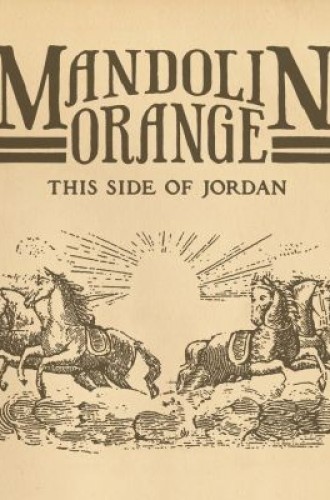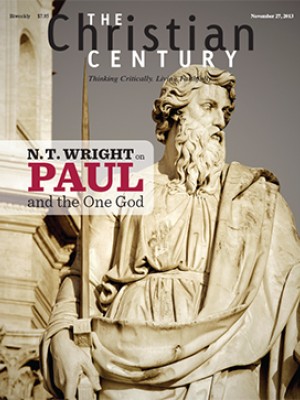This Side of Jordan, by Mandolin Orange
Another day, another talented Americana songwriter immersed in the language of a faith he doesn’t profess. Andrew Marlin, half of the North Carolina duo Mandolin Orange, is a church musician’s son who no longer identifies with the church. But as he’s explained it, Christianity remains his vocabulary for speaking of spiritual things.
Right from the title, the duo’s third record presents its lyrical vision as an alternative to the otherworldly religiosity of old-time gospel. About a minute into the first song, “House of Stone,” Emily Frantz’s voice joins Marlin’s for the first time: “Now some may sing the sounds of ‘hallelujah’ / And dream about a mansion of gold / But . . . my dreams all are resting on a house of stone.” Mine too, and I dream those dreams in Christian community. Marlin’s life-affirming lyrics make me want to invite him to church, or at least send him a Wendell Berry book or something.
Read our latest issue or browse back issues.
But first I just want to listen to him and Frantz play and sing together. Mostly he plays guitar and she plays fiddle; sometimes he picks up a mandolin and she covers guitar. Both play with the understated competence of legit pickers who aren’t there to show off. And they get around on not just different instruments but different styles—country gospel, old time, modern folk, gentle nods toward bluegrass and honky-tonk.
Holding it all together are a baritone and an alto that fit just so. Frantz has mentioned the issue of being pigeonholed as a “guy-girl duo.” But it’s hard to hear Mandolin Orange as a take on the flashy old Nashville duet acts, or even as something akin to Gillian Welch and David Rawling’s coed take on the “brother band” tradition of close harmony so well blended you’re not always sure who’s who. Marlin and Frantz don’t really sound alike—his voice is reedy and slightly gritty, hers straightforward and pure—and their harmonies aren’t always close. But they sing alike: there’s a honed sensitivity to each other and to the material.
Sometimes there’s a third voice—Ryan Gustafson, who also adds subtle electric guitar. Upright bass, drums, piano and pedal steel round out the sound. But it’s a duo record with backup, not a band record—even at full tilt, the arrangements and mix favor Marlin and Frantz.
Marlin’s song forms and melodies sometimes ramble a bit. But elsewhere the writing is punchy and sharp. Frantz sings lead on the best one, “The Doorman,” a slow, lush melody over a lazily swung beat. The tune and lyrics of “Cavalry” give it a touch of the epic folk ballad—balanced by the arrangement’s string-band simplicity and Marlin’s understated singing. “Waltz About Whiskey” is fun, a self-consciously country song about lost love and a jukebox. And the ambitious “Hey Adam” is sung from the perspective of a closeted gay man’s compassionate secret lover: “Please hear these words: Our father loves you always.”
Come to think of it, we may have to do “Hey Adam” at my church. Whatever its creators’ religious commitments, this is a lovely and faithful record.







